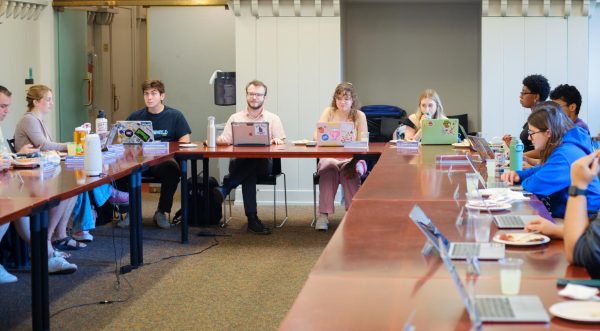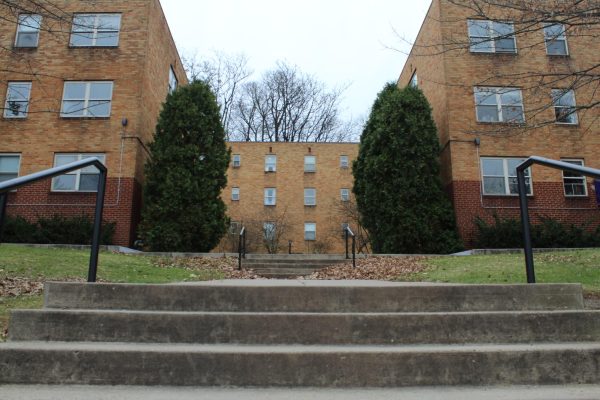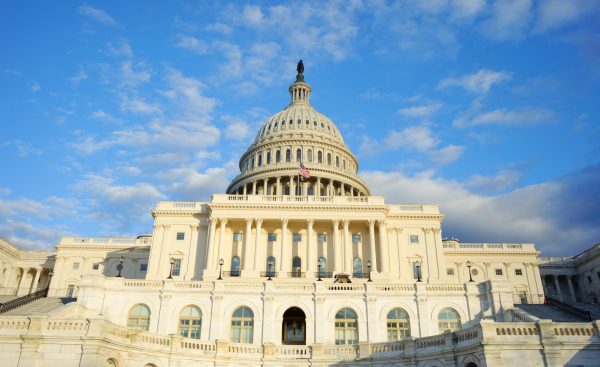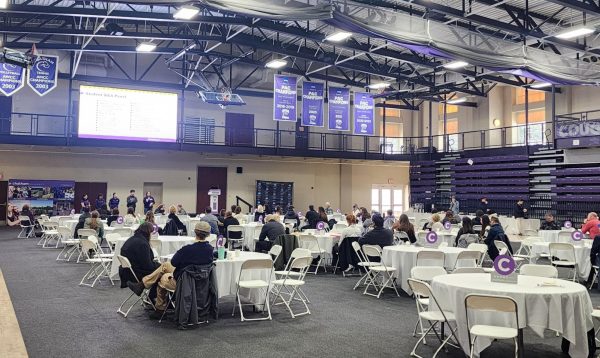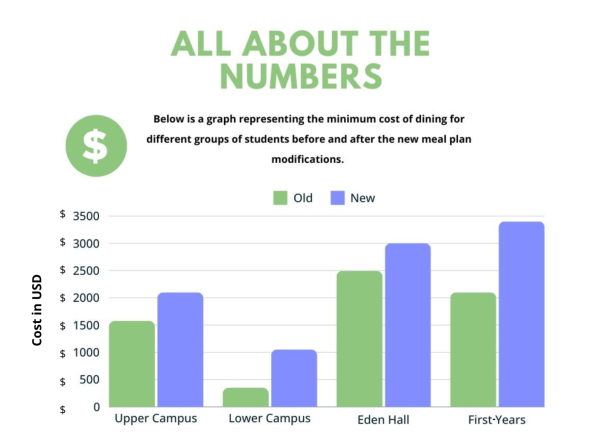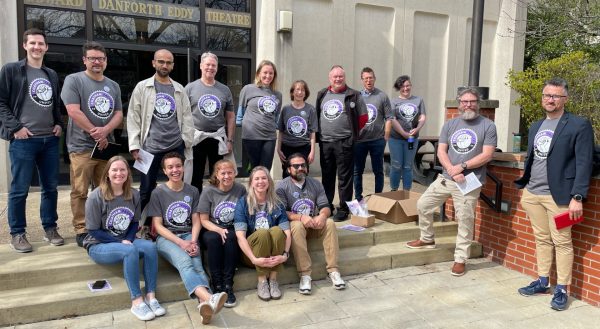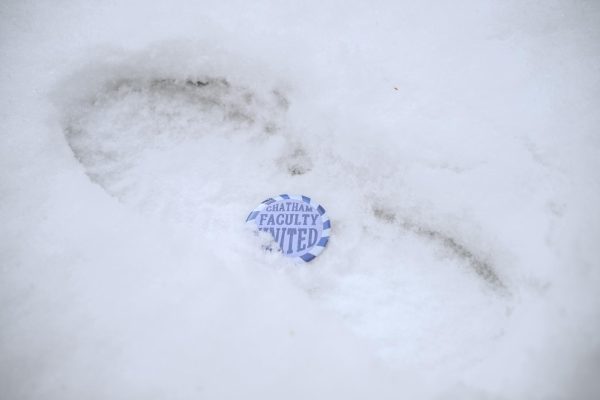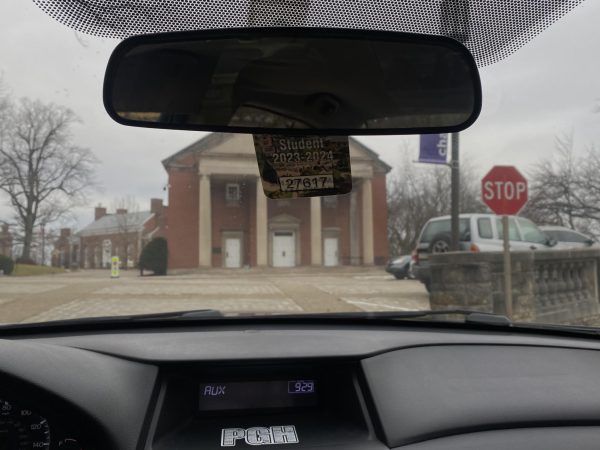Open letter: Students respond to President Finegold’s Post-Gazette op-ed
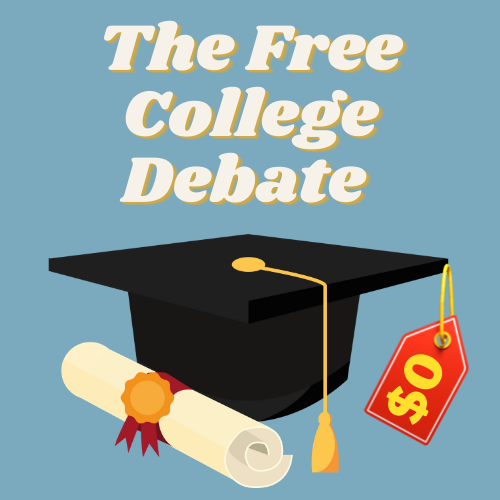
May 6, 2021
By Adriana Jurado and Rachel Wolfe
Dear President Finegold,
You have opened a debate on tuition-free college that ignited the campus a few short weeks before the end of the semester. We applaud your willingness to continue this debate through the open forums and, likely, continued campus discussions. Your thesis hinges on advocacy for more significant expansion of Pell grant-funded programs, a worthy cause. However, as we address the points from your Pittsburgh Post-Gazette story, our argument advocates for greater accessibility to higher education through tuition-free public college.
Delivering high quality education is expensive
In President Finegold’s first point, he states that the cost of delivering quality higher education is increasing due to the services that colleges provide to the students. He lists multiple services that colleges provide to their students, such as “food, housing, transportation, health care, facilities” and counseling. However, there is a bigger societal problem associated with why colleges must provide their students with these basic services: American society fails to provide all of its citizens with basic necessities such as food, shelter and health care.
Millions of Americans go without these basic necessities every day. It is expected that the individuals provide themselves with these basic services, which is not always possible — especially for college students just starting off in a world that often requires someone to hold a college degree in order to afford such necessities.
Colleges must provide students with such necessities because the “real world” will not. In order to keep the standard of living high among their students and continue to be considered a high-quality institution of education, certain costs are to be expected. As the cost-of-living increases, which would affect the cost of food, shelter, health care and transportation, it makes sense that more money must be spent to provide these services.
Another point of contention in President Finegold’s argument is his assertion that there is an increased need for counseling services due to the “dramatic rise in the number of college students with mental health issues.” One factor contributing to dramatic increase is the academic and financial stress that college puts on an individual. Whether the student is paying out of pocket or has taken loans out, the stress of paying semester to semester or coming out of college thousands of dollars in debt is daunting. It has been linked to mental health crises such as “depression, anxiety and even thoughts of suicide.”
One of President Finegold’s final points argues that it would be unfair “to tax the whole population to provide benefit to just those who go to college.” However, it is evident that the whole population already pays taxes to fund a lot of government programs and initiatives that do not directly benefit them.
There are many examples of tax-funded government programs that either don’t directly benefit Americans’ daily lives or that only benefit specific groups of Americans, including veterans benefits and Medicaid. Requiring the U.S. population to pay taxes to fund these government programs keep them funded and open to those in need.
Taxing the whole population for an initiative that disproportionately benefits a specific group or socioeconomic class already occurs (giving tax subsidies to corporations, for example). Providing public higher-education for free would increase the collective standard of living and make higher education more accessible to lower-income families. Higher education would no longer be an elitist and classist system; it would be free and open to everyone.
The next major recession
In President Finegold’s second argument he states that we must think of the next recession and its economic impact on discretionary spending. Discretionary spending includes military, education, health care, housing, social security, etc. In the 2021 federal budget, President Donald Trump requested $1.485 trillion in discretionary spending. Of this $1.458 trillion budget, $636.4 billion went to the Department of Defense, while only $66.6 billion was dedicated to education. Why is well over half of the U.S.’s federal discretionary budget set aside for national defense?
Instead, it would make the most sense to cut military spending during a recession. There is more space for more financial adjustment within a program funded by more than $630 billion than one that receives $66 billion. The education funding must be spread across all of the public K-12, community and state college systems. Federal education spending is already majorly spread thin.
Tax funded tuition-free public colleges, including community and state colleges, are unprecedented in the U.S. and would not necessarily fall victim to recession budget cuts. President Joe Biden’s free college proposal, according to Market Watch’s Jillian Berman, could boost the economy by $160 billion. President Biden’s plan would make community college free and four-year public college tuition-free for students from households earning $125,000 or less.
As college becomes increasingly necessary and unaffordable, President Biden’s free-college plan would not only stimulate the American economy but ensure that a quality higher education is accessible to everyone no matter their economic status.
Too many young people in college for the wrong reason
President Finegold’s statement regarding the reasons why students enroll in college – solely for the community’s sociability – is classist. Studies show instead the net benefit a college education provides for poor and working-class students. The inequality in access to higher education and inability to thrive due to financial circumstances is discussed by Soria and Bultman. Moreover, the prospect of tuition-free public higher education strengthens the intermingling of the various socioeconomic classes, uniting them in an unitary, egalitarian institution (Ygelsias 2019).
Only 12% of students from lower incomes earn a bachelor’s degree compared to their peers of other incomes. Working-class students struggle in higher education due to their class identification and due to their lack of shared experiences with more privileged peers. Low-income students balance college and work, which often does not cover expenses, and report greater feelings of “inadequacy, intimidation, exclusion and inferiority” (Soria and Bultman 2014; Reed 2017).
Students without familial financial capital are more likely to not attend college at all (Reed 2017). Students with more class privilege could spend time engaging in extracurriculars and spending quality time with their peers; however, lower-income students were not found to enjoy this same luxury. The time and stress college expenses add to a low-income student’s life take away from their academic experience and the “nice social atmosphere” that President Finegold posits that students attend university for.
Investment in college vs. a free consumption good
College, as President Finegold states, is one of the best investments an individual can make in their future. Research has shown that those with a college degree are, on average, more successful than those without. Ninety-one percent of graduates who are a part of the millennial generation say their bachelor’s degree is already paying off. There was about a $17,500 income disparity between graduates and those with only a high school degree (Raphel 2014).
The notion that usurious tuition is the price we must pay for this benefit, however, is absurd. Higher education is one part of the young adult experience. Putting all the pressure on universities to fulfill every need for a prospering young person is both unwise and does not seem to improve educational outcomes for college students. Higher education is viewed by most Americans as a public good (TC 2018), despite how President Finegold might personally view it. We think what we need to address, as a small, private institution, why a member of our administration appears to be advocating against more accessible public education.
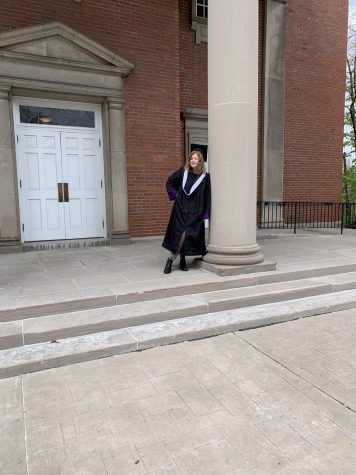 BIO: Adriana Jurado is the former president of the Chatham Democrats, she has been involved in several social justice campus movements during her tenure. She is a recent graduate with a B.A. in Political Science. She will be continuing on her education at University of Pittsburgh’s Masters of Social Work program come Fall 2021.
BIO: Adriana Jurado is the former president of the Chatham Democrats, she has been involved in several social justice campus movements during her tenure. She is a recent graduate with a B.A. in Political Science. She will be continuing on her education at University of Pittsburgh’s Masters of Social Work program come Fall 2021.

BIO: Rachel Wolfe is a Senior majoring in Policy Studies and minoring in History. She is the current President of the Chatham University College Democrats. She is also involved with the Cold Case Club and Student Government’s Communications and Engagement Committee. She hopes to someday work in the area of criminal justice reform.








